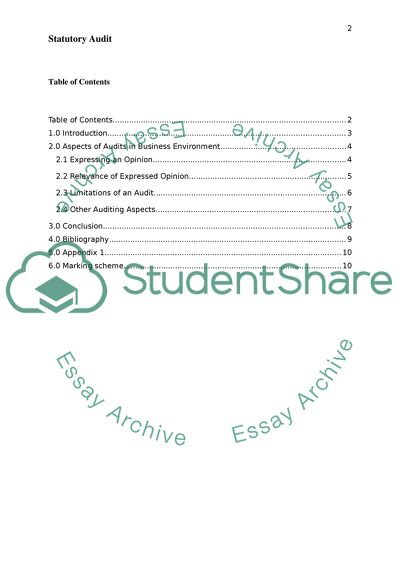Cite this document
(Audit in Nowadays Business: Managing the Expectation Gap Essay, n.d.)
Audit in Nowadays Business: Managing the Expectation Gap Essay. https://studentshare.org/finance-accounting/1765482-relevance-of-statutory-audits-in-todays-business-environment-managing-the-expectation-gap
Audit in Nowadays Business: Managing the Expectation Gap Essay. https://studentshare.org/finance-accounting/1765482-relevance-of-statutory-audits-in-todays-business-environment-managing-the-expectation-gap
(Audit in Nowadays Business: Managing the Expectation Gap Essay)
Audit in Nowadays Business: Managing the Expectation Gap Essay. https://studentshare.org/finance-accounting/1765482-relevance-of-statutory-audits-in-todays-business-environment-managing-the-expectation-gap.
Audit in Nowadays Business: Managing the Expectation Gap Essay. https://studentshare.org/finance-accounting/1765482-relevance-of-statutory-audits-in-todays-business-environment-managing-the-expectation-gap.
“Audit in Nowadays Business: Managing the Expectation Gap Essay”. https://studentshare.org/finance-accounting/1765482-relevance-of-statutory-audits-in-todays-business-environment-managing-the-expectation-gap.


